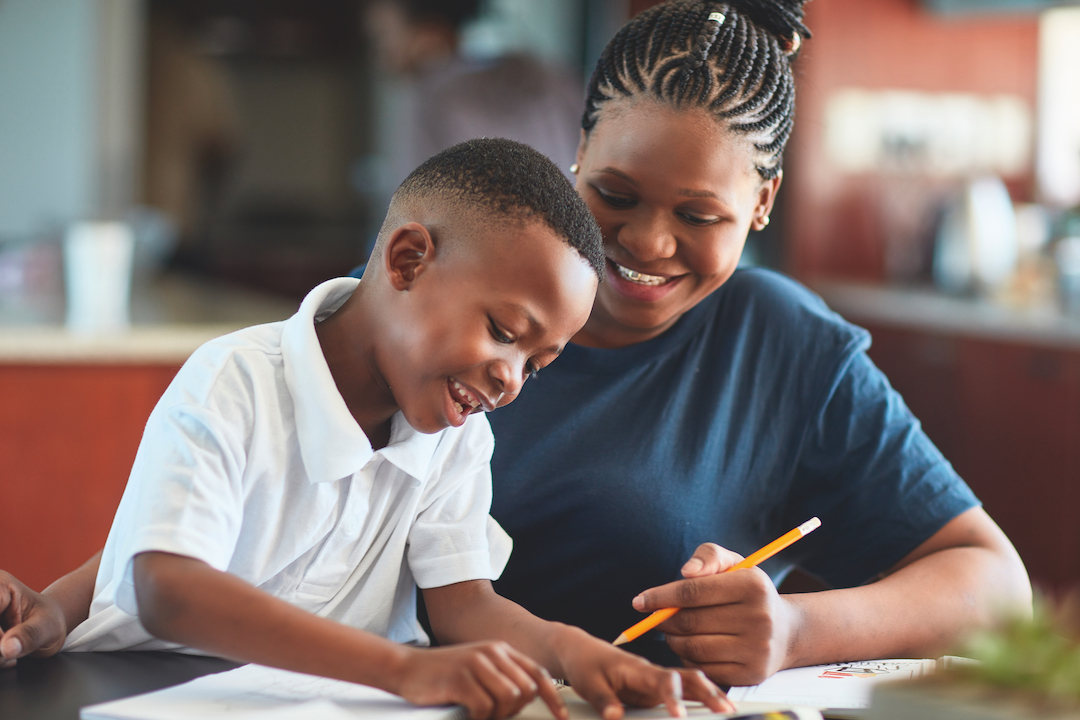Ever have the feeling your whole life is in lockdown as you balance the many roles of parent, partner and provider during the COVID-19 pandemic? Breathe deep – and take action.
Many parents are caught in what can seem to be an impossible balancing act, trying to work (or find work), help kids catch up on schoolwork, keep up with home chores and maintain relationships, all while ensuring everyone stays healthy and safe. It’s easy to feel overwhelmed, but there are steps you can take to help you adjust to the new normal and cope with it better – and with whatever the post-coronavirus future presents.
Have a routine
Feelings of powerlessness, confusion and fear are natural in the face of the pandemic, and one way to gain a sense of control is to follow a routine. ‘Structure also gives kids a sense of security,’ says Joburg counselling psychologist Karin Steyn. Aim to wake and sleep around the same time, and set aside slots for your work (or finding work), for supervising school work, for exercise, meals and for relaxing. Some parents prefer to wake their kids early, exercise together to help tire them, then make a window for work. Others let kidssleep a little longer, while they rise early and work unimpeded. Find what best suits your situation.
Pare it down
Keep home chores to essentials, your place is not on show. Divide chores among family members – even the youngest can help lay the table and feed pets. Keep meals simple but nourishing, unless a budding chef in the family enjoys the challenge. Encourage comfortable dressing, rather than lounging in pyjamas. Attractive robes and slides are becoming the new go-to ‘home-office’ wear, with jackets slipped on for virtual meetings.
Cut kids some slack
They are missing friends and outings, and may worry about the virus and their schooling. See that each has a quiet space where they can work, with stationery, internet access (if possible) and whatever else they need. Connect with teachers, and establish what has to be covered and by when. Get kids to draw up a timetable that’s easily visible to keep track of tasks, and help them stay on top of these. Include breaks and exercise. ‘It’s important to spend some time outside in the sun as this helps with the production of vitamin D, which plays a vital role in supporting the immune system’ says Karin. ‘In our family, you can earn lockdown points (“Locks”) for showering and getting dressed in the morning, making tea, gardening, washing the car, playing outside, reading a book or cooking. Locks can be exchanged for treats, screen time, or at the end of lockdown, converted into rands (10 locks = R1). You lose locks for fighting or disregarding family rules.’
Cut yourself slack
Keep your expectations real – ask yourself, what’s actually achievable? Accept that things won’t always be perfect, but that’s okay in the new normal and you are not alone. Find methods of self-care. Take some me-time each day. Have video-call coffee breaks with friends, explore a new hobby, learn a language or skill, meditate or do yoga. You need to stay strong for yourself and for others.
Use online resources
From educational classes and cooking, to exercise and arts and crafts, there are YouTube channels, podcasts and apps for them all, and the variety has exploded since the advent of international lockdowns. Watch programmes or live-stream gigs with family members and friends holed up elsewhere, and discuss them afterwards, to help keep connected. And don’t forget about the little ones. They’re craving engagement with friends and people their own age too. Liaise with fellow parents to arrange weekly video calls or online games for kids to partake in.
Bond over boardgames
Playing games such as Pictionary, Scrabble and Monopoly can help you relax and laugh together, and teach skills from spelling to impulse control, taking turns and accepting defeat. Have a family jigsaw or Lego creation available that you can work on together or when you need a break. Keep an eye on kids’ screen time Accept that they will be having more at this time, but regulate quality. Engaging with their friends is different to playing violent video games with strangers.
Cultivate positivity
Keep abreast of the news through reliable sources, and discuss developments with children, but emphasise that you are all in this together and will get through it. Trying to shelter children from the realities and avoiding the topic will simply breed fear, and they will sense adult fears, says Karin. Explain the basics age-appropriately and calmly, and teach them how to stay safe. ‘Your children will look to you for support and reassurance,’ says UNICEF. ‘Listen to them when they share how they are feeling. Accept how they feel and give them comfort… Remind them that you care and that they can talk to you anytime. Then do something fun together!’
Words: Glynis Horning | Photography: Gallo/GettyImages





